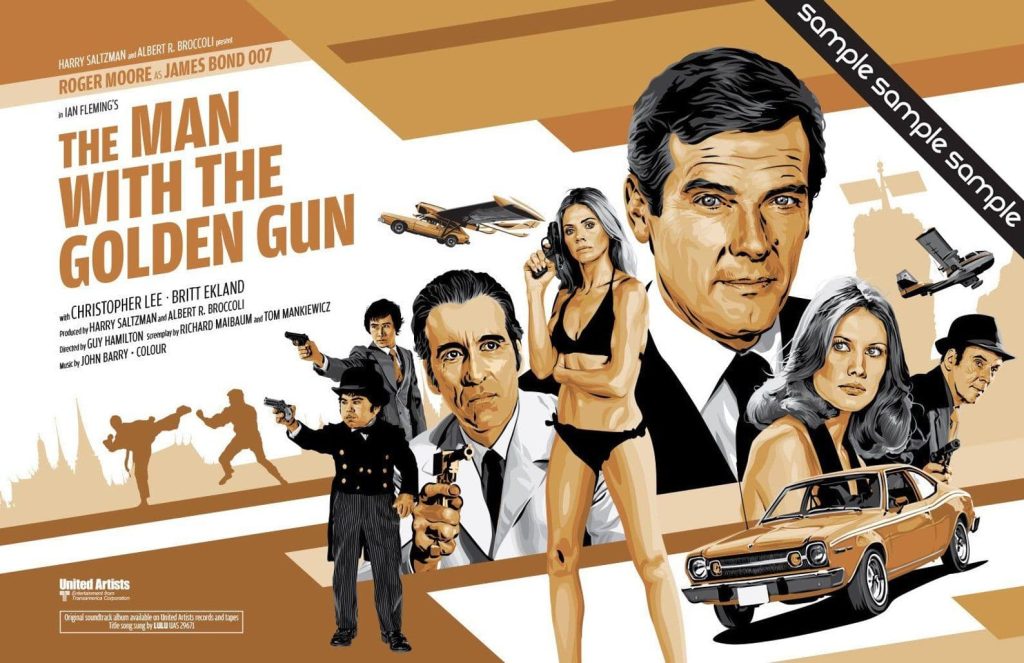
“The Man with the Golden Gun” – Lulu’s Bold Foray into Bond Territory
Released in 1974 as the theme song for the James Bond film of the same name, “The Man with the Golden Gun” marked a daring and dynamic entry into the realm of spy music. Performed by the fiery Lulu, this track diverged from the lush orchestral soundtracks of earlier Bond songs, delivering a more explosive and energetic feel. Though it didn’t chart as prominently as previous Bond themes—nor reach the same acclaim as Shirley Bassey’s “Goldfinger” or Nancy Sinatra’s “You Only Live Twice”—Lulu’s performance remains a fascinating gem in the Bond musical canon, appreciated by fans for its boldness and grit.
Lulu, best known for her soulful voice and powerful hit “To Sir With Love”, brought a raw and fearless energy to this song. Her vocals, dynamic and brimming with attitude, perfectly matched the spirit of Bond’s latest nemesis—the titular “Man with the Golden Gun”, a contract assassin with a reputation for precision. The film starred Roger Moore as 007, pitted against Francisco Scaramanga, played by Christopher Lee. In the song, Lulu channels the seductive yet dangerous aura of this villain, delivering lyrics that highlight both his charm and lethal efficiency.
With the opening line, “He has a powerful weapon / He charges a million a shot,” the tone is set for a song that doesn’t take itself too seriously but revels in the exaggerated bravado typical of the Bond universe. The lyrics, written by the legendary Don Black, emphasize the mystique and deadliness of Scaramanga, painting him as both alluring and terrifying. Lulu’s voice captures the playful sensuality and menace needed to embody the duality of such a character.
Musically, “The Man with the Golden Gun” reflects the changing landscape of Bond soundtracks in the 1970s. Composed by the prolific John Barry, who had crafted many of the franchise’s most iconic scores, the song takes on a more rock-influenced edge than his usual arrangements. The brass stabs and aggressive guitar riffs give the track a funky, hard-hitting feel, a departure from the smoother jazz and orchestral vibes of earlier Bond themes. It feels deliberately brash, mirroring the over-the-top style of the film itself.
Despite its daring style, “The Man with the Golden Gun” didn’t achieve the same commercial success as other Bond themes. Some critics at the time found the song too jarring or out of step with the Bond tradition. Yet, over the years, it has gained a cult following, admired for its uniqueness within the series. Lulu’s fearless vocal delivery and the track’s high-octane arrangement make it stand out, even if it didn’t become a chart-topping hit.
One reason the song remains memorable is Lulu’s commanding presence. While other Bond themes were often sung with elegance and restraint, Lulu’s performance is full of fire. There’s an almost defiant swagger to her voice, as if she’s daring the listener to underestimate her. This quality gives the song a distinctive edge—perfectly aligned with the wild and unpredictable nature of “The Man with the Golden Gun” himself.
Though the film itself received mixed reviews upon release, Lulu’s contribution to the Bond soundtrack remains an intriguing part of her career. It showcases her versatility as an artist, proving she could step beyond the soulful ballads she was known for and embrace a more theatrical, high-energy style. “The Man with the Golden Gun” may not be the most celebrated Bond theme, but it has earned its place as a memorable experiment in the franchise’s musical evolution.
In hindsight, the song offers a glimpse into a unique moment in both Bond history and Lulu’s musical journey. It captures the playful flamboyance of the 1970s, with all the excess and charm that defined the decade. Lulu’s powerful performance, combined with John Barry’s adventurous composition, makes “The Man with the Golden Gun” a thrilling, if underappreciated, part of the Bond legacy.
Even though it didn’t enjoy blockbuster success, the song’s brassy, funky feel has aged well, finding new life among Bond aficionados and fans of 70s music. It stands as a reminder that not all Bond songs need to be grandiose or dramatic—sometimes, a little rock-and-roll swagger is just what the spy ordered.